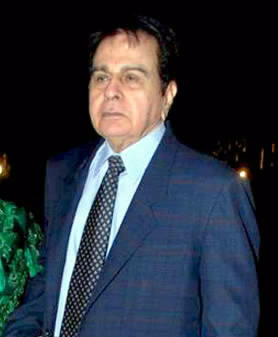Was Dilip Kumar a bigger actor than a star, or was it the other way around? Pundits may debate for a long time over this issue, for he won both—commercial and popular success as well as critical acclaim.
The legendary actor was at his peak in the golden age of Hindi cinema—the 1950s and 1960s. He died today morning at the age of 98. He is survived by his wife and former film star Saira Banu.
President Ram Nath Kovind wrote: “Dilip Kumar summarised in himself a history of emerging India… With his demise, an era ends…” Kumar, along with Dev Anand and Raj Kapoor, not only dominated Hindi cinema in yesteryears but also left an indelible on it.
Prime Minister Narendra Modi tweeted: “Dilip Kumar ji will be remembered as a cinematic legend. He was blessed with unparalleled brilliance, due to which audiences across generations were enthralled. His passing away is a loss to our cultural world. Condolences to his family, friends and innumerable admirers. RIP.”
Actor Amitabh Bachchan also expressed similar feelings on Instagram, “My idol Dilip Saheb .. lost .. never before never after .. “an epic era has drawn curtains .. never to happen again.” Rich tribute indeed form a maestro.
Kumar’s popularity knew no boundaries. Pakistan Prime Minister Imran Khan called him the “greatest and most versatile actor.” He was born in what is now Pakistan as Mohammad Yusuf Khan. His celluloid name was given by Devika Rani, herself a legendary actress, who also gave him the first chance.
Kumar’s best known films in his glory days include Andaaz, Devdas, Mughal-e-Azam, Gunga Jamuna, Ram Aur Shyam, Naya Daur, Madhumati, and Aadmi. He, however, continued to act in the 1980s and 1990s as well; some of the movies of his later stage of career are Kranti, Vidhaata, Shakti and Mashaal.
First actor to win the Filmfare Award for Best Actor in 1954, he went on to win it seven more times. He got the Dadasaheb Phalke Award in 1994 and Padma Vibhushan in 2015.
